Upon the last total eclipse of the sun that was visible over the United States, in 2017, I convinced myself that I didn't need to see it. That I didn't even want to see it.
So, I stayed in LA and enjoyed the partial eclipse.
But, truth be told, once it was over, I felt like I'd missed out.
"I'll go see the one in 2024," I said to myself and all my friends. "Maybe I'll go to Mexico."
So as this year's total solar eclipse approached, I felt like I had to stay true to my word. Especially when I realized there wouldn't be another one appearing above the U.S. for another 20 years (and who knows what kind of condition I'll be in at that age??).
The same concerns I had seven years ago still rang true. Was it really worth the time and expense to travel for a few minutes of darkness? What if it was cloudy and I wouldn't be able to see anything anyway?
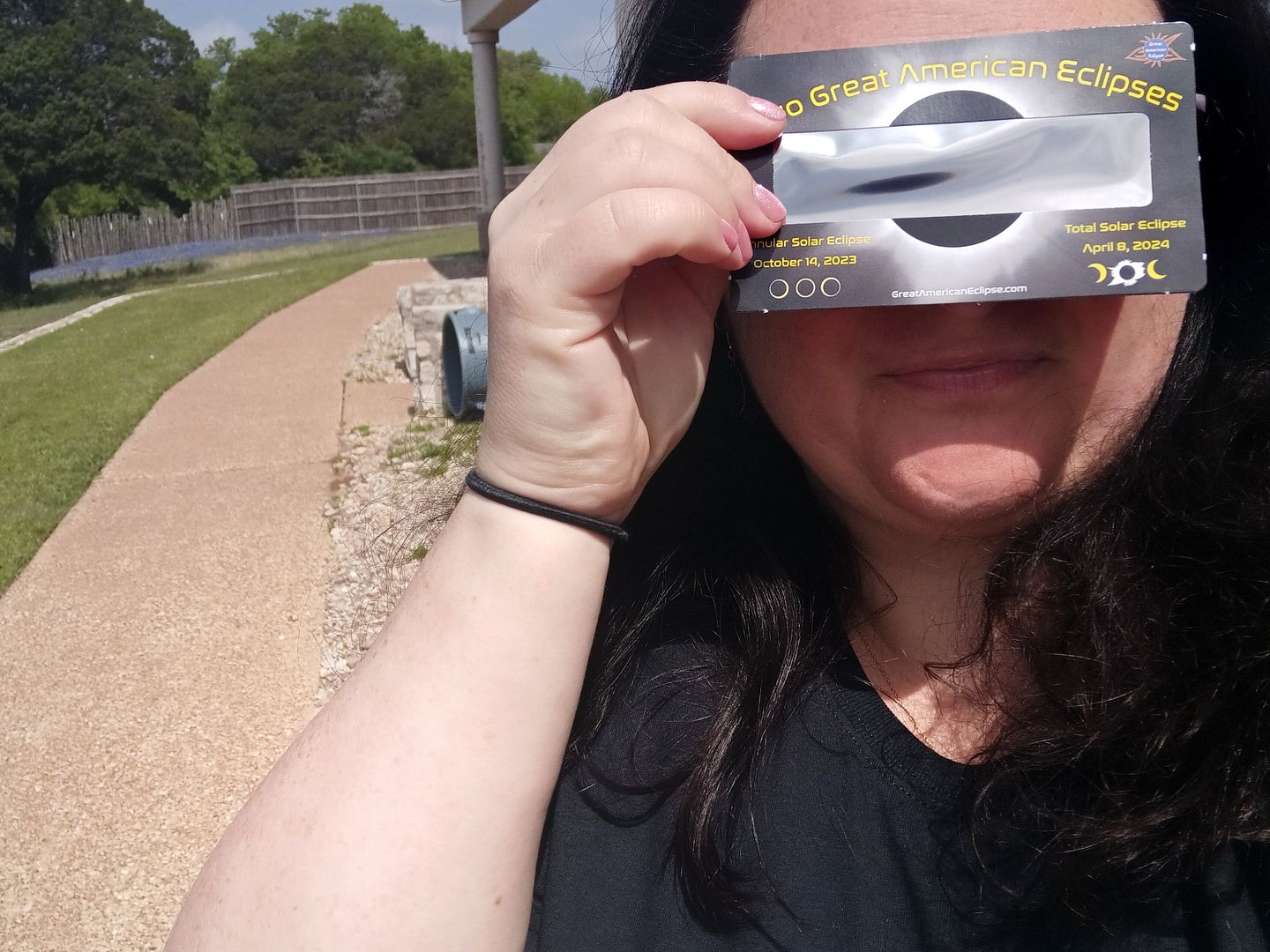
At some point, I just had to bite the bullet and commit to the trip—not to Mexico on my own, but to North Texas for a family reunion not of my own kin, but a chosen family that invited me to join them in the path of totality.
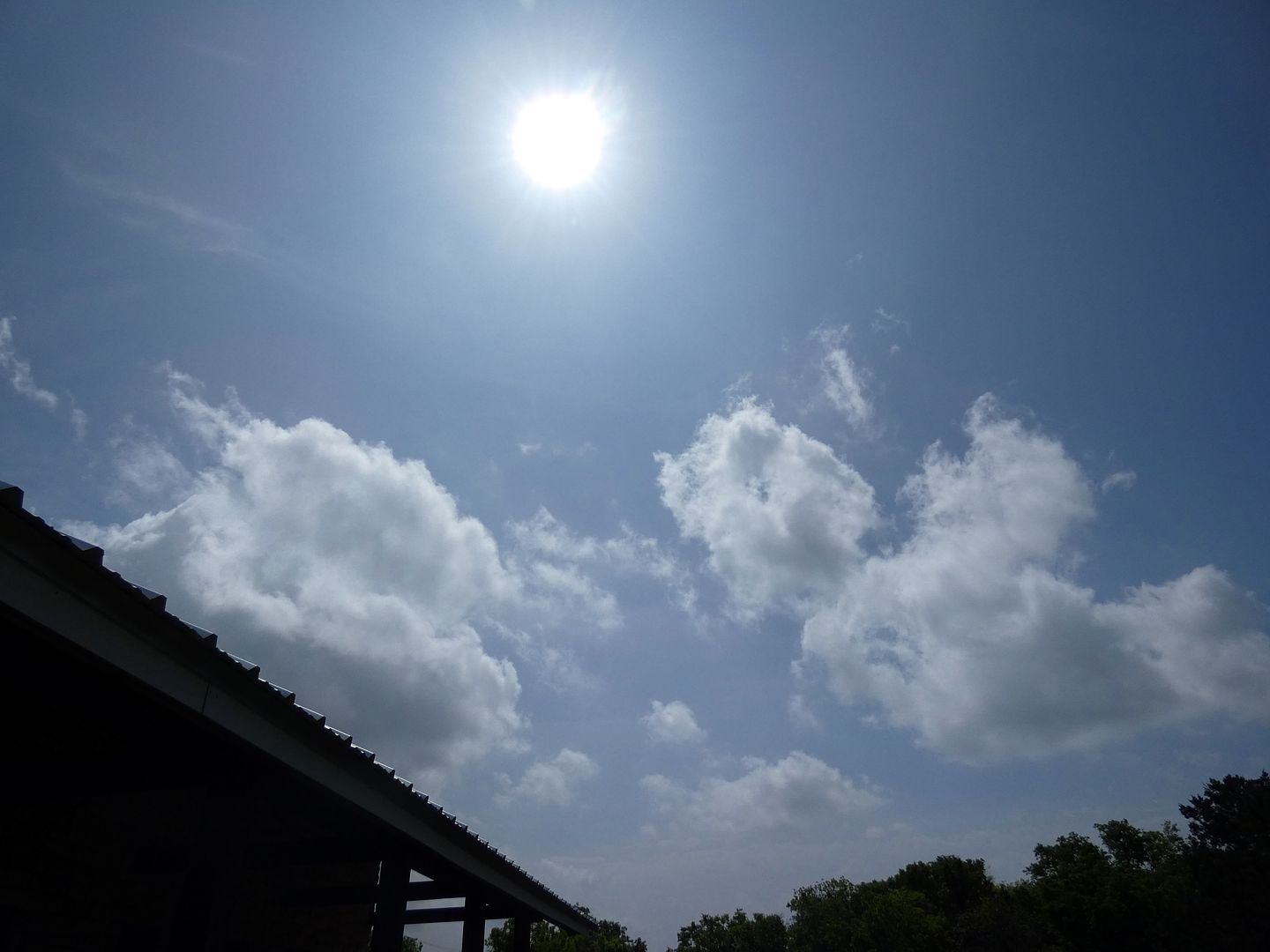
Texas probably has better chances for good weather than, say, Oregon or Western New York—but for at least a week before "Eclipse Day," the sky conditions were definitely a concern. We were warned of thunder and lightning and we were watching for tornados. And when we woke up that morning, we were fogged in at our vacation rental by the shores of Lake Whitney.
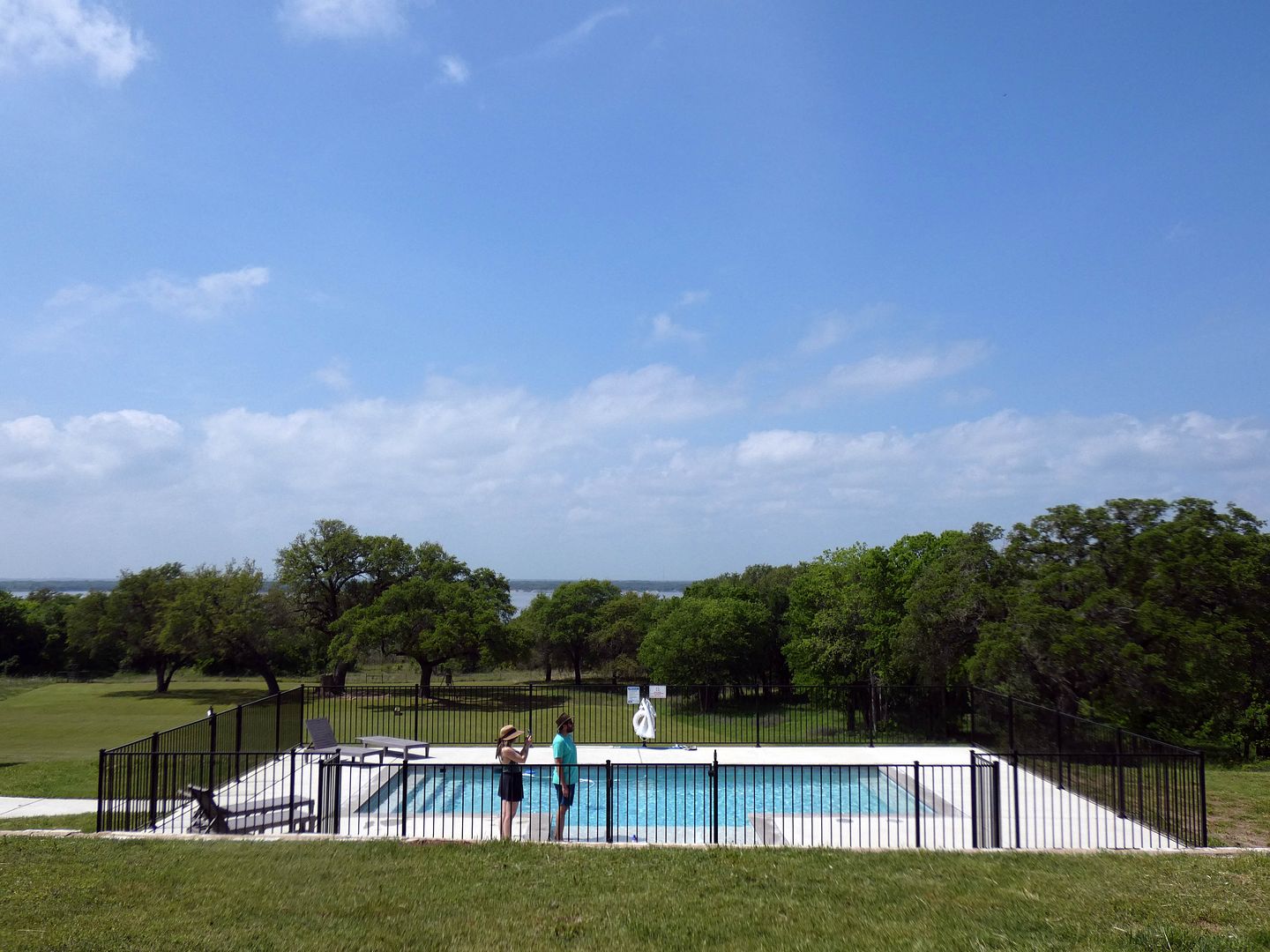
I knew people who'd changed or even canceled their plans at the last minute because of the weather forecast—but I'm glad I didn't, because by late morning, someone called out, "I see blue sky!" And for the next couple of hours, we had an uninterrupted view of this rare celestial event.
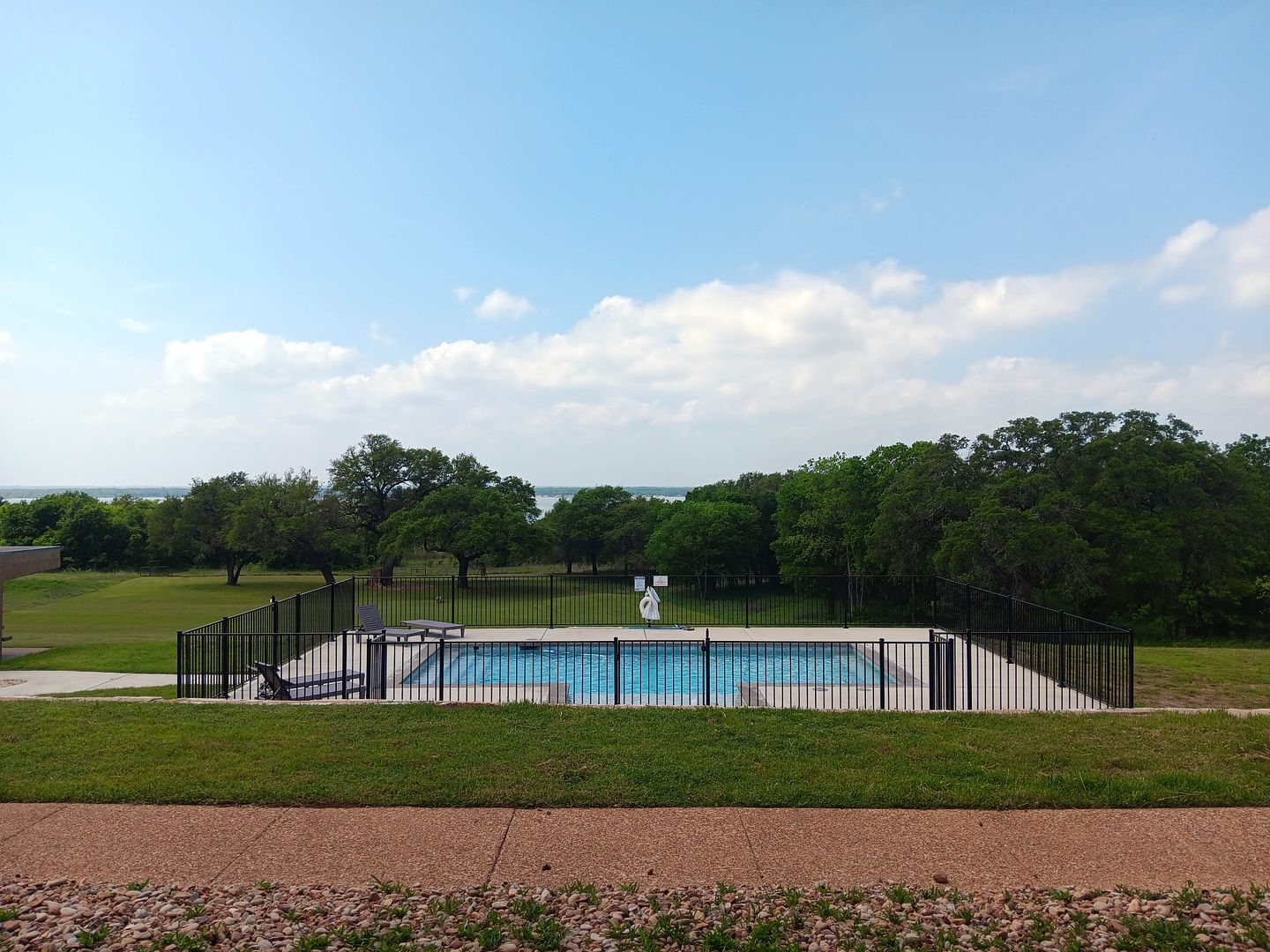
I tried to follow some advice I'd heard about eclipses, that you should just enjoy them and not worry about documenting them. But I couldn't help but taking a few photos from the same spot as time elapsed, just to show the changing of the light and the way the colors were getting weirdly tweaked.
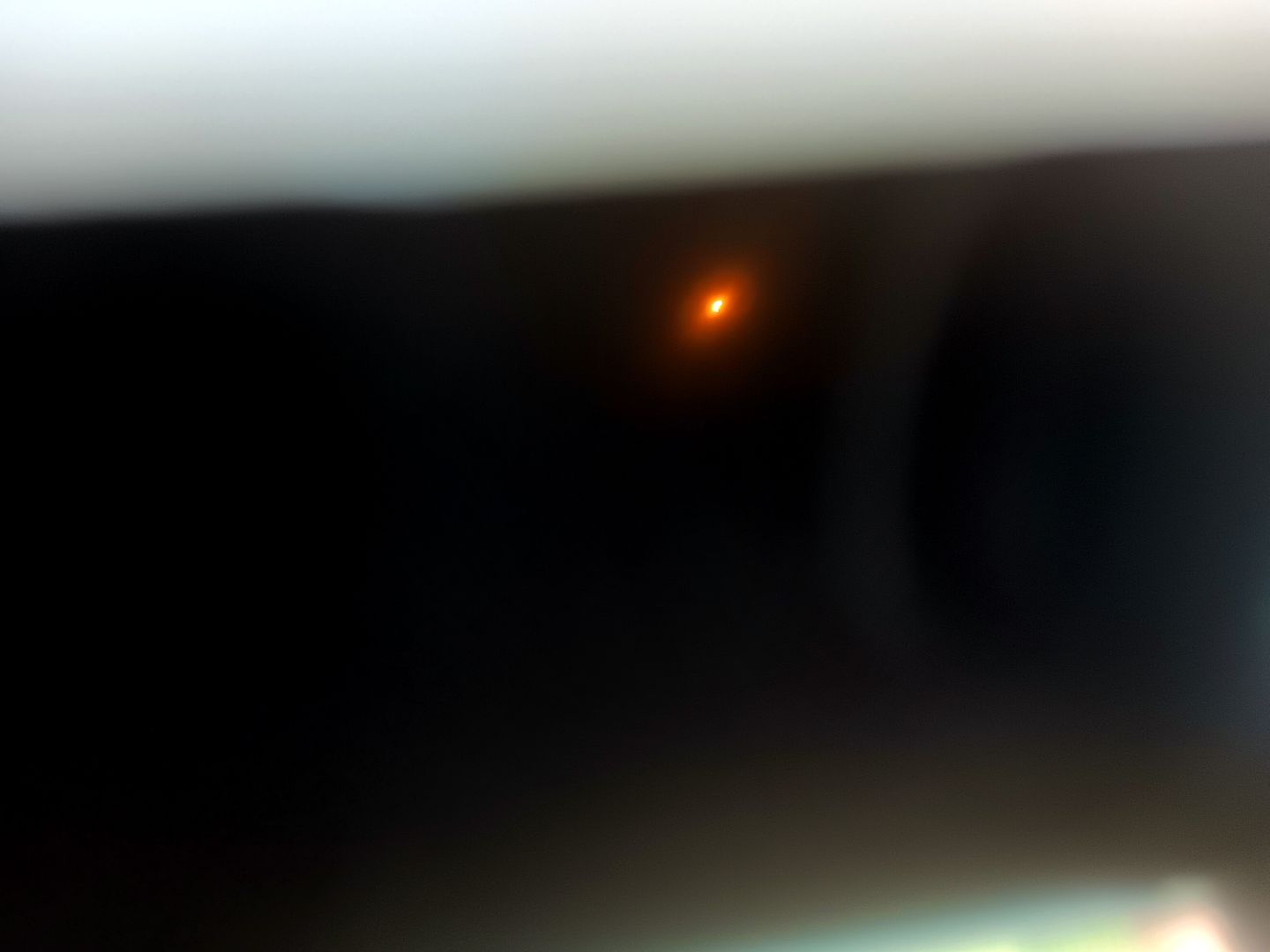
Taking photos through a solar lens filter wasn't really working out for me, but even a blurry photo helps me remember that moment we first noticed the moon taking a bite out of the sun's flaming orb.
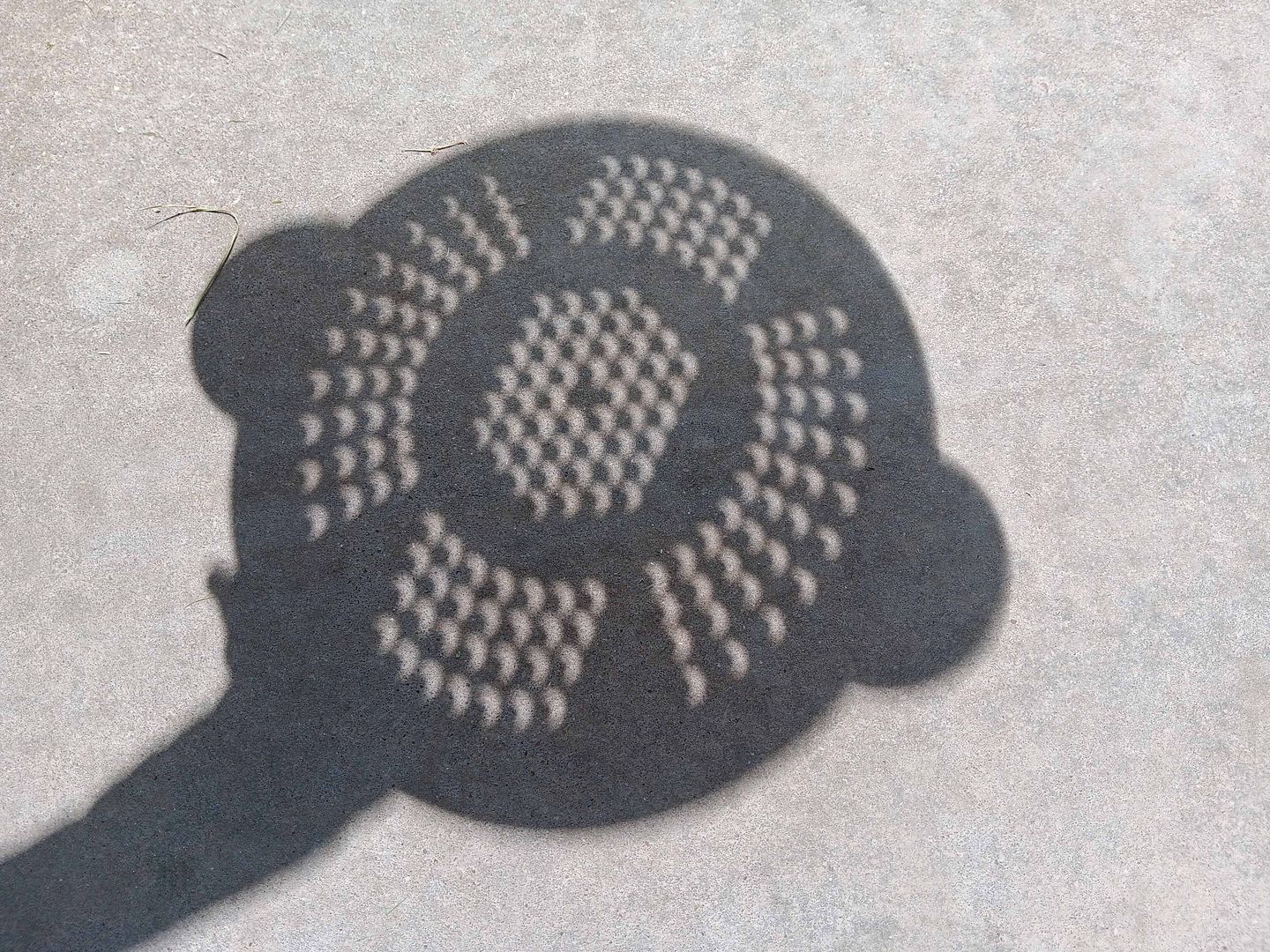
And of course we needed to witness the crescent through some shadow play with a colander.
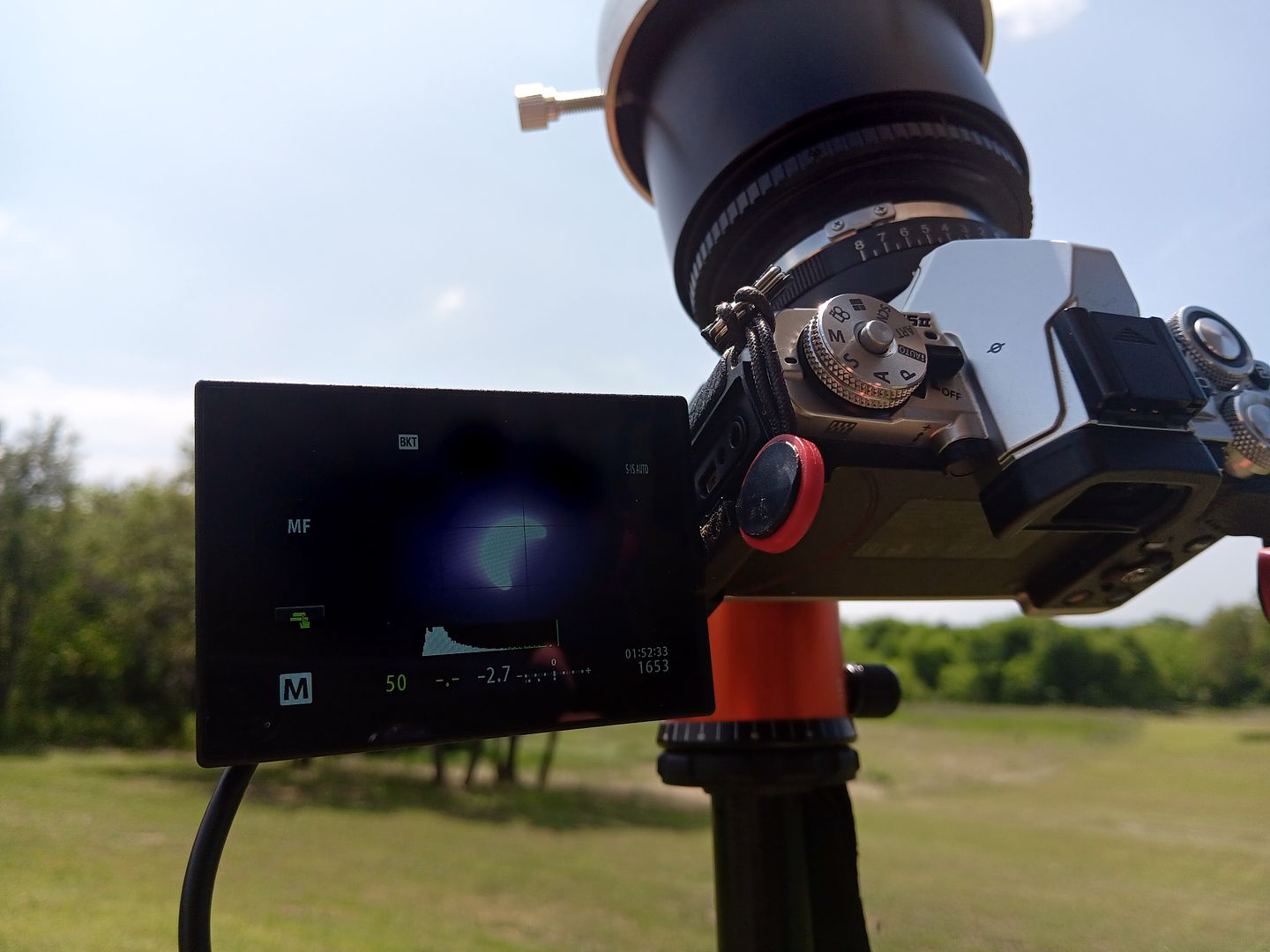
Someone else had their fancy equipment set up to try to capture the incredible shrinking sliver of sun on a more professional level...
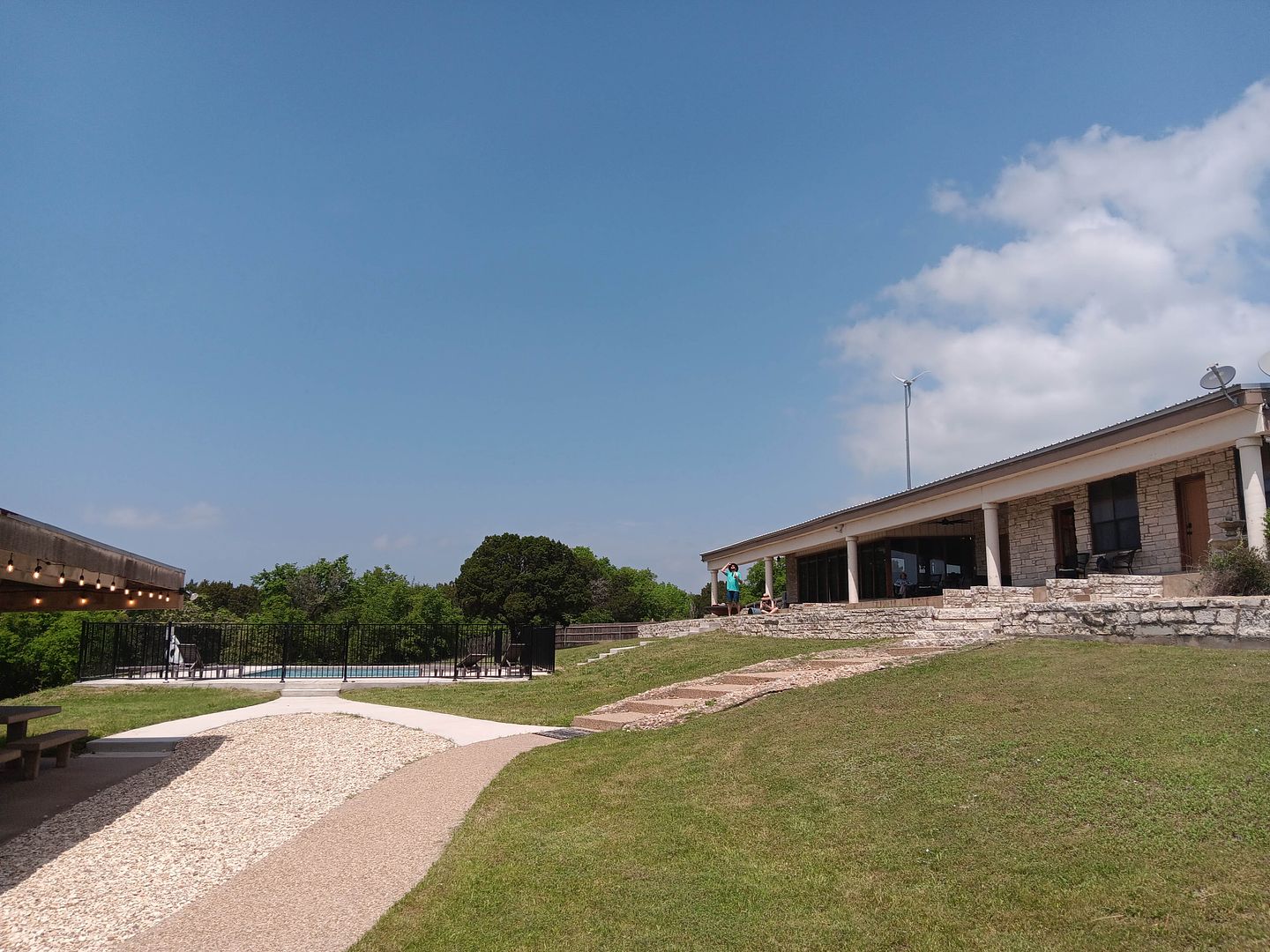
...so I turned my attention to the sound of the nearby dogs barking in excitement and the sights of the view around us...
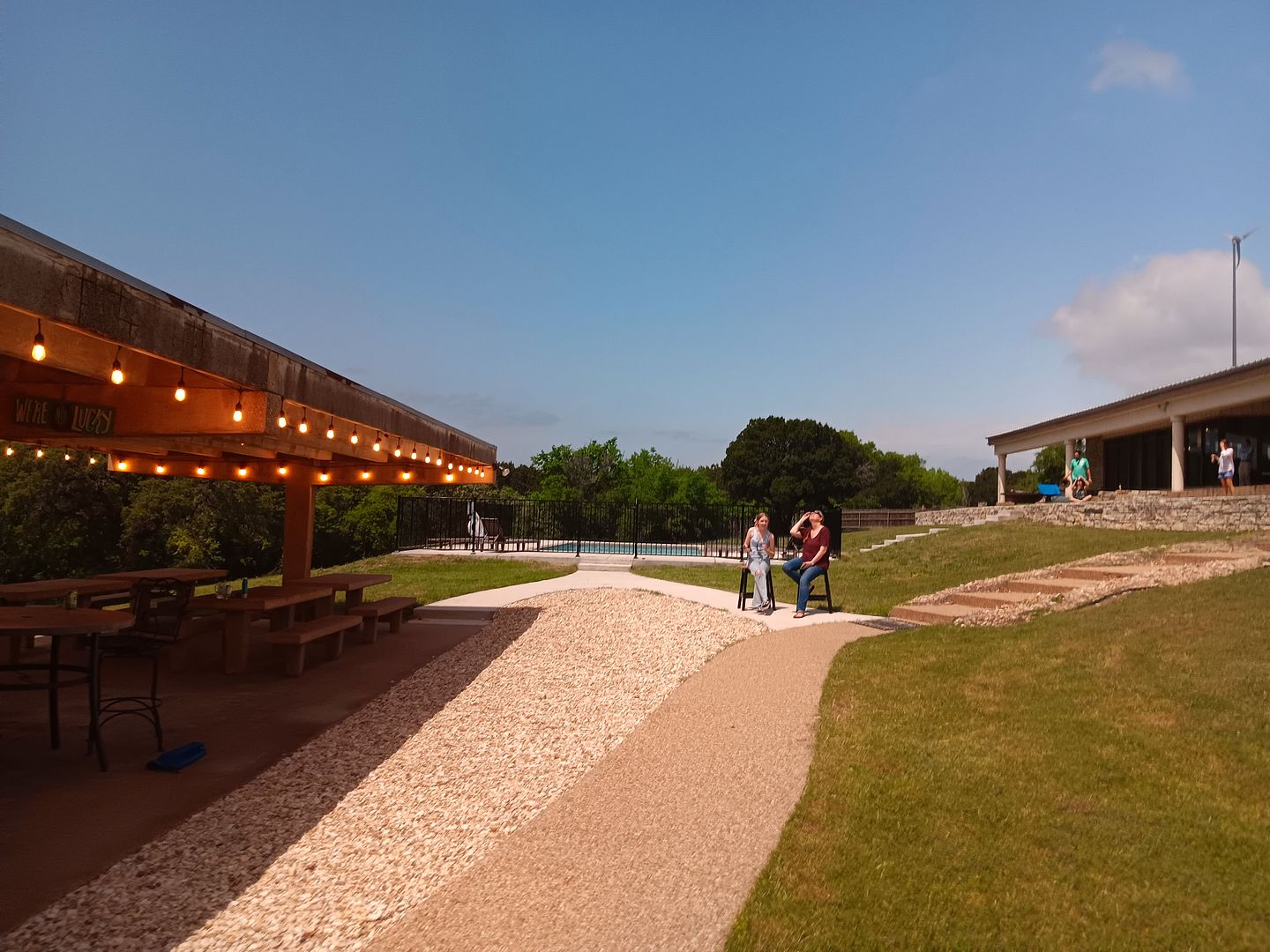
...and how the coming twilight created conditions otherwise unseen, a transition from day to night without a "magic hour" interlude, blue sky with white puffy clouds but an increasingly amber-colored light coming down from above.
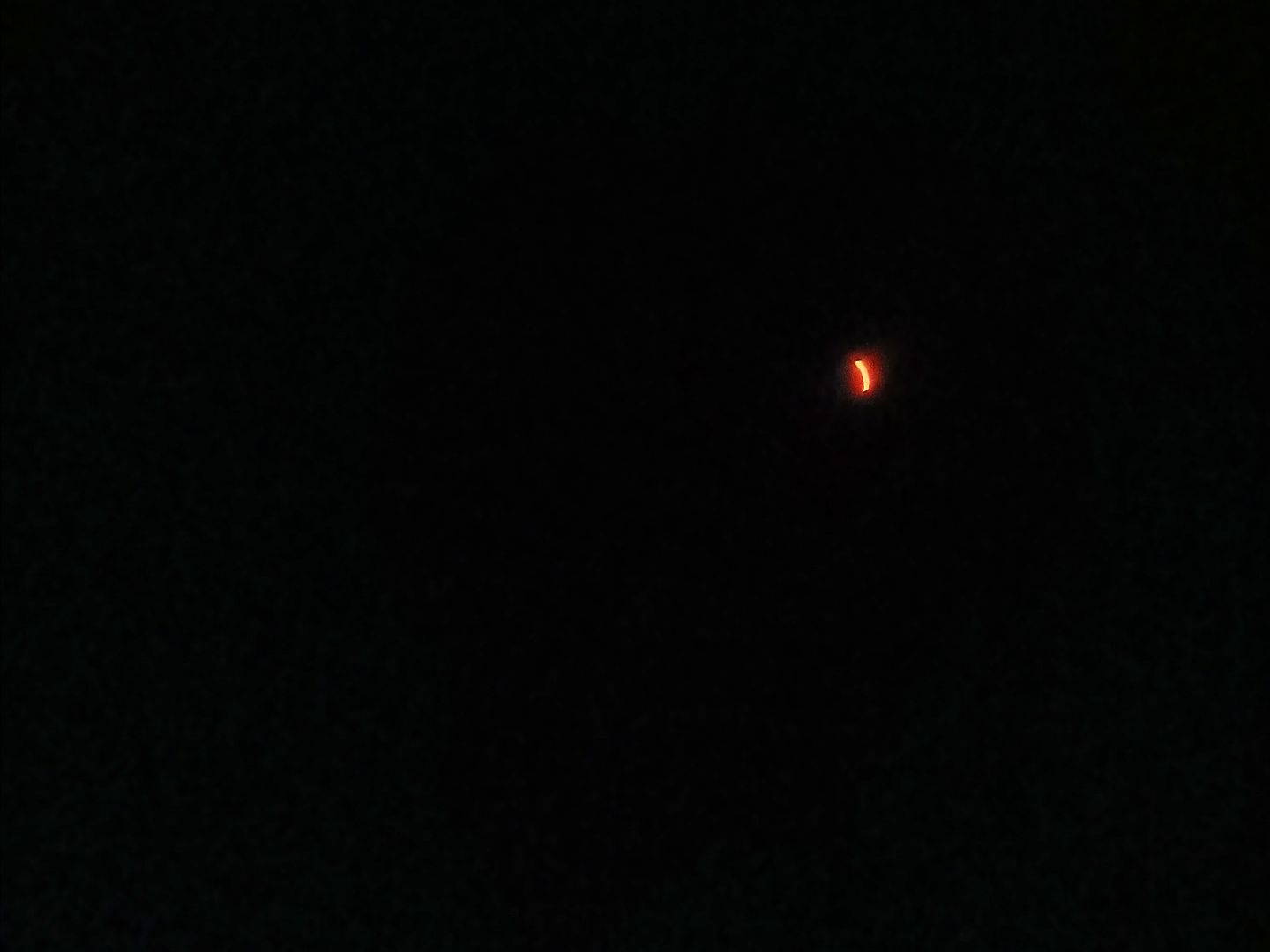
Oddly, the darkest moment is actually right before the sun is completely obscured by the moon.
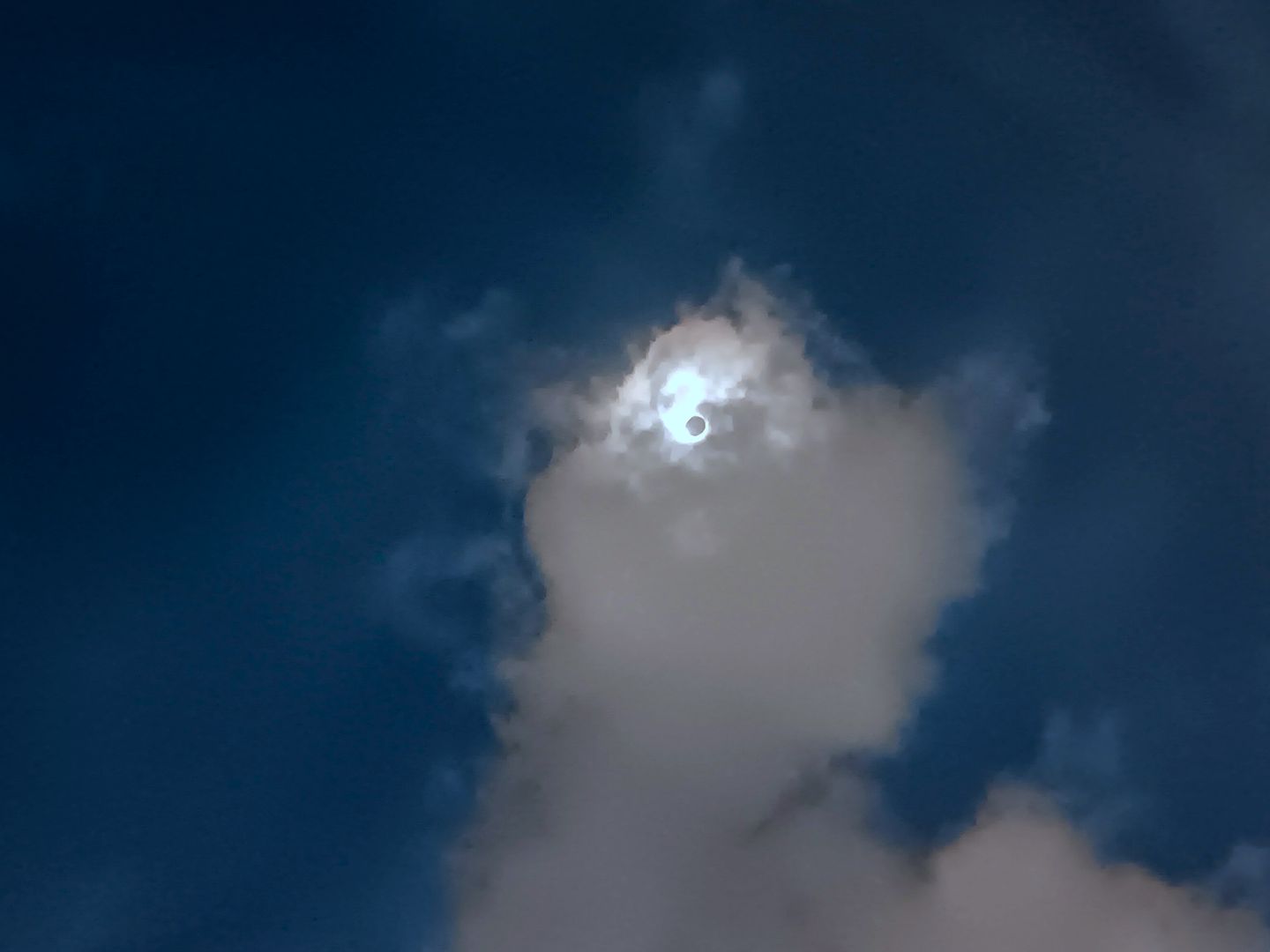
And then, totality hit—for about four minutes this time—somehow keeping the sky blue as the white corona (a.k.a. the "diamond ring") burst forth.
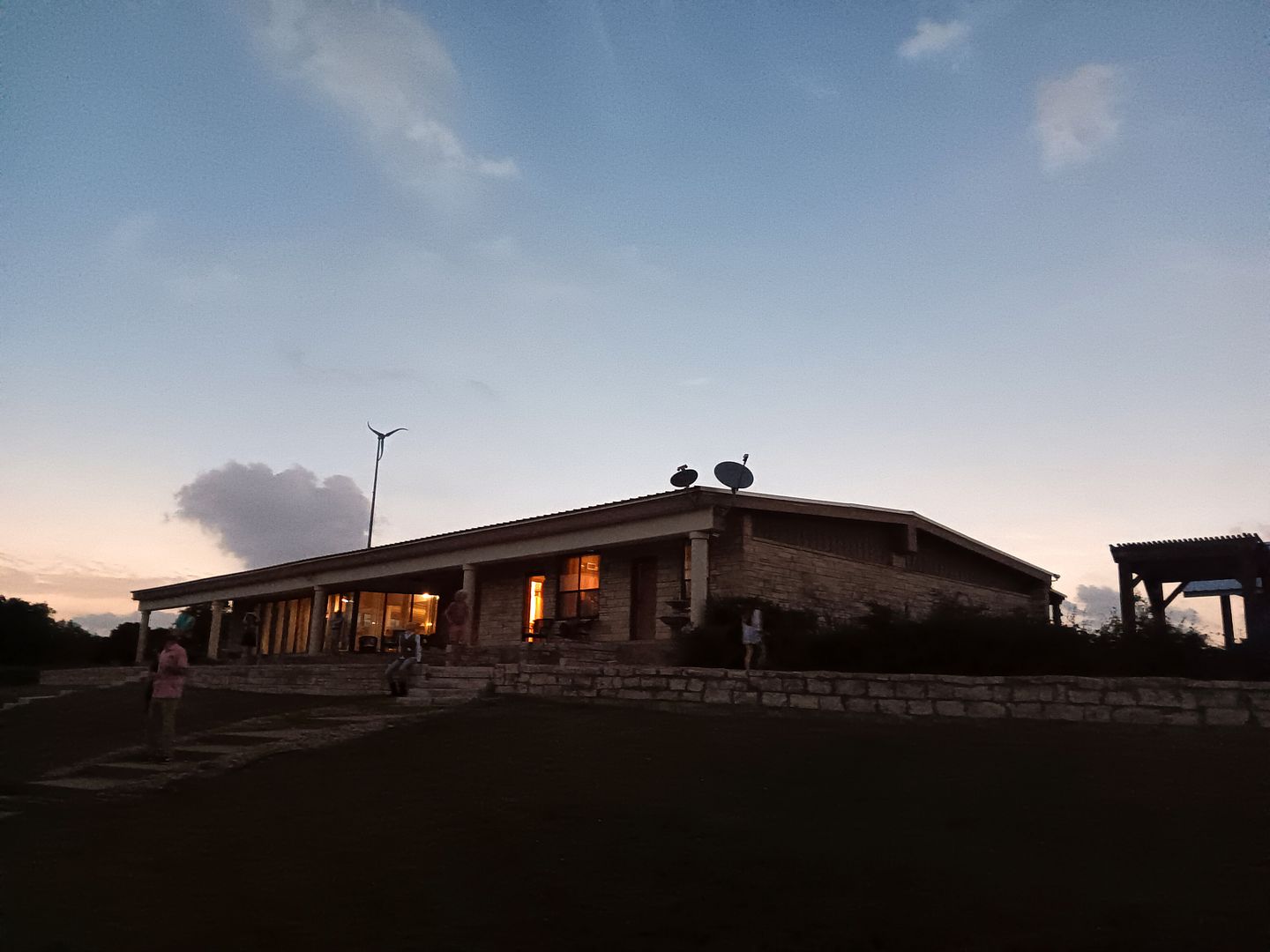
It no longer looked like daytime—but it wasn't night, either. The birds still chirped. I didn't notice the wind picking up or dying down. It felt like... purgatory.
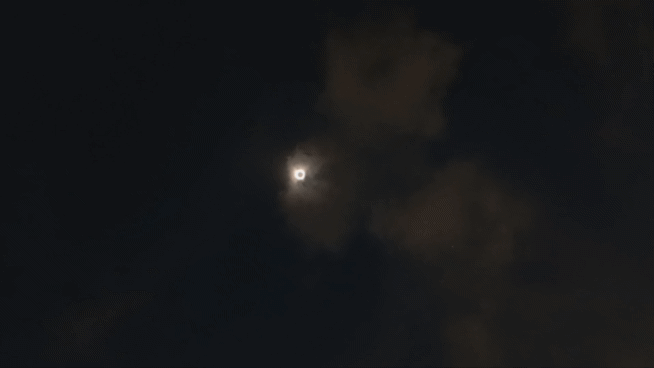
And in an odd turn of events from earlier that day, I found myself grateful for the few clouds—especially as they passed over the eclipsed sun. The extra filter made it easier to photograph and video the goings-on, and made the scene that much more dramatic. And yet they didn't sabotage our view, which we could take in for a few minutes with our unprotected eyes. We even saw a solar prominence that appeared like a pink dot on the lower right-hand region of the radius.
Perhaps the strangest part was when the moon had fully passed across the sun and things began to normalize. It seemed to get a lot brighter a lot faster than it had taken to get dark. On the other side of the eclipse, it felt a lot hotter and a lot more humid than it had before. And there were butterflies going nuts in one particular tree.
I didn't find myself getting emotional or moved in any way, though I actually expected to. I just felt excited and, well, glad I was there to see it in person.
Maybe the fireworks that were being set off by the neighbors kind of took me out of the reverie. Maybe I would've felt different in a crowd of thousands—or if I was completely alone.
Instead, I just said, "That was so weird."
And then everything just seemed to go back to normal.
But, in this case, normal was good. And the thunderstorms and pouring rain held off until later that afternoon, without a tornado in sight.
Related Posts:

I'm happy for everyone who got to see it. My wife and I had reservations in Austin and Kerrville, but the two weeks of persistently negative forecasts had me book an alternate trip to Rochester, which had been showing persistently positive forecasts for eclipse day, right up until that weekend, when it turned very negative. I cancelled the Austin stuff on Friday, then waited until Sunday afternoon to cancel the Rochester trip. [Since I had "bought" everything with refundable points or dollars, we didn't lose out financially, or at least I don't think we did. Still trying to get some money back from AA.] We ended up staying "local," bummed we missed out, but already trying to figure out the trick to getting to a future eclipse with as little cash out of pocket as possible. Friends who did head to central TX (Austin, Fredicksberg, and the DFW area) all got to see totality. Rochester was a total cloud out, so at least we didn't compound missing the eclipse with an expensive trip to see clouds.
ReplyDelete